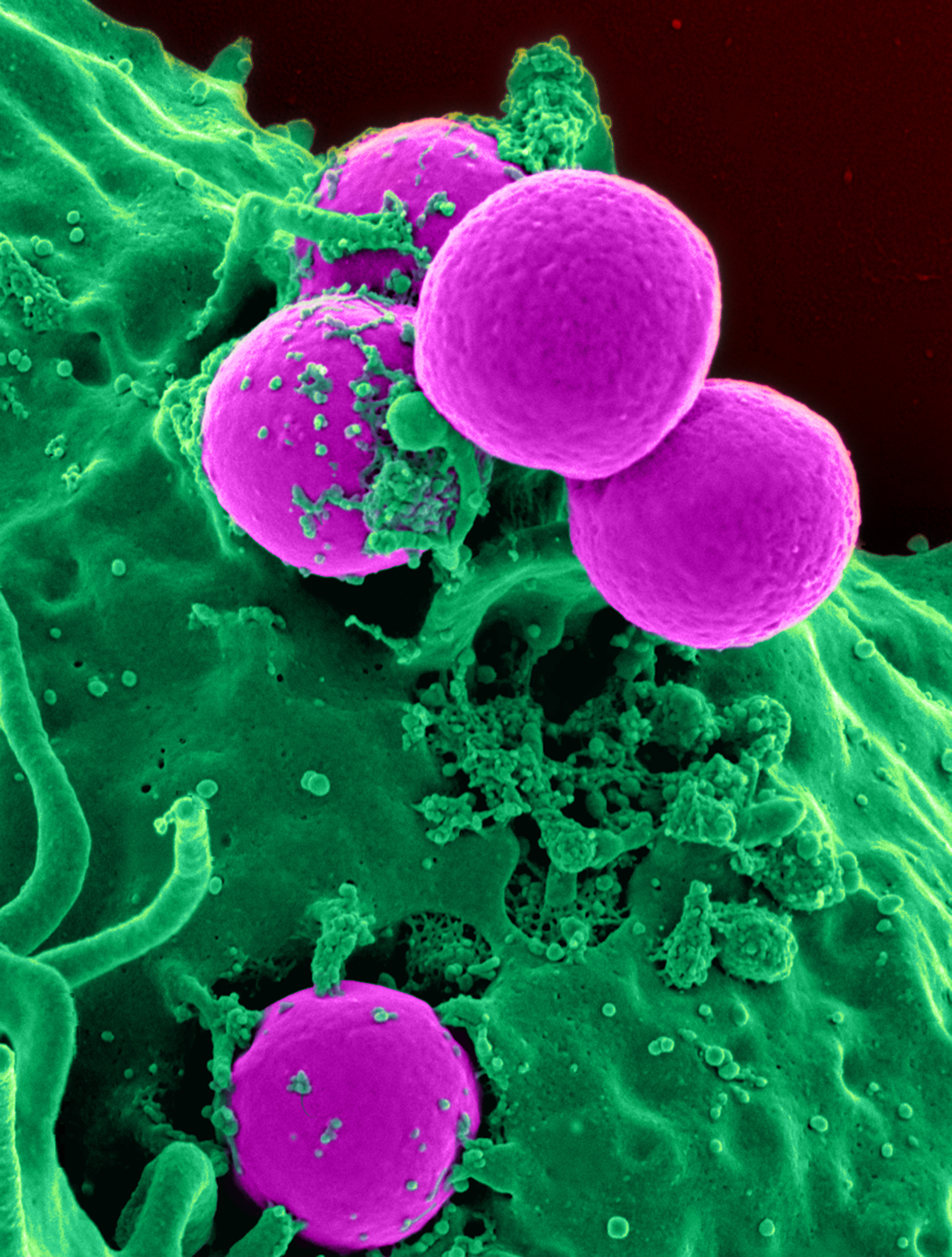|
Hilda Mangold
Hilde Mangold (20 October 1898 – 4 September 1924) (née Proescholdt) was a German embryologist who was best known for her 1923 dissertation which was the foundation for her mentor, Hans Spemann's, 1935 Nobel Prize in Physiology or Medicine for the discovery of the embryonic organizer,Mangold, Hilde (Proescholdt) by Marilyn Bailey Ogilvie and Joy Dorothy Harvey in ''The Biographical Dictionary of Women in Science''. "one of the very few doctoral theses in biology that have directly resulted in the awarding of a Nobel Prize".''Developmental Biology''. 10th ed. by Scott F. Gilbert. The general effect she demonstrated is known as embryonic induction, that is, the capacity of some cells to direct the developmental trajectory of other cells, one of the first steps towards cloning. Induction remains a fundamental concept and area of ongoing research in the field. Biography Hilde Proescholdt was born in Gotha, Thuringia, a province in central-eastern Germany on October 20, 1898. ... [...More Info...] [...Related Items...] OR: [Wikipedia] [Google] [Baidu] |
Gotha (town)
Gotha () is the fifth-largest city in Thuringia, Germany, west of Erfurt and east of Eisenach with a population of 44,000. The city is the capital of the Gotha (district), district of Gotha and was also a residence of the Ernestine House of Wettin, Wettins from 1640 until the end of monarchy in Germany in 1918. The House of Saxe-Coburg and Gotha originating here spawned many European rulers, including the royal houses of the United Kingdom, Belgium, Portugal (until 1910) and Bulgaria (until 1946). In the Middle Ages, Gotha was a rich trading town on the trade route ''Via Regia'' and between 1650 and 1850, Gotha saw a cultural heyday as a centre of sciences and arts, fostered by the dukes of Saxe-Gotha. The first duke, Ernest I, Duke of Saxe-Gotha, Ernest the Pious, was famous for his wise rule. In the 18th century, the ''Almanach de Gotha'' was first published in the city. The publisher Justus Perthes (publishing company), Justus Perthes and the encyclopedist Joseph Meyer (publ ... [...More Info...] [...Related Items...] OR: [Wikipedia] [Google] [Baidu] |
Antibiotics
An antibiotic is a type of antimicrobial substance active against bacteria. It is the most important type of antibacterial agent for fighting pathogenic bacteria, bacterial infections, and antibiotic medications are widely used in the therapy, treatment and antibiotic prophylaxis, prevention of such infections. They may either bactericide, kill or bacteriostatic agent, inhibit the growth of bacteria. A limited number of antibiotics also possess antiprotozoal activity. Antibiotics are not effective against viruses such as the ones which cause the common cold or influenza. Drugs which inhibit growth of viruses are termed antiviral drugs or antivirals. Antibiotics are also not effective against fungi. Drugs which inhibit growth of fungi are called antifungal drugs. Sometimes, the term ''antibiotic''—literally "opposing life", from the Greek language, Greek roots ἀντι ''anti'', "against" and βίος ''bios'', "life"—is broadly used to refer to any substance used against ... [...More Info...] [...Related Items...] OR: [Wikipedia] [Google] [Baidu] |
German Embryologists
German(s) may refer to: * Germany, the country of the Germans and German things **Germania (Roman era) * Germans, citizens of Germany, people of German ancestry, or native speakers of the German language ** For citizenship in Germany, see also German nationality law **Germanic peoples (Roman era) *German diaspora * German language * German cuisine, traditional foods of Germany People * German (given name) * German (surname) * Germán, a Spanish name Places * German (parish), Isle of Man * German, Albania, or Gërmej * German, Bulgaria * German, Iran * German, North Macedonia * German, New York, U.S. * Agios Germanos, Greece Other uses * German (mythology), a South Slavic mythological being * Germans (band), a Canadian rock band * "German" (song), a 2019 song by No Money Enterprise * ''The German'', a 2008 short film * "The Germans", an episode of ''Fawlty Towers'' * ''The German'', a nickname for Congolese rebel André Kisase Ngandu See also * Germanic (disambiguatio ... [...More Info...] [...Related Items...] OR: [Wikipedia] [Google] [Baidu] |
1924 Deaths
Events January * January 12 – Gopinath Saha shoots Ernest Day, whom he has mistaken for Sir Charles Tegart, the police commissioner of Calcutta, and is arrested soon after. * January 20–January 30, 30 – Kuomintang in China holds its 1st National Congress of the Kuomintang, first National Congress, initiating a policy of alliance with the Soviet Union and the Chinese Communist Party. * January 21 – Alexander Cambridge, 1st Earl of Athlone, The Earl of Athlone is appointed Governor-General of the Union of South Africa, and High Commissioner for Southern Africa.Archontology.org: A Guide for Study of Historical Offices: South Africa: Governors-General: 1910-1961 (Accessed on 14 April 2017) * January 22 – R ... [...More Info...] [...Related Items...] OR: [Wikipedia] [Google] [Baidu] |
1898 Births
Events January * January 1 – New York City annexes land from surrounding counties, creating the City of Greater New York as the world's second largest. The city is geographically divided into five boroughs: Manhattan, Brooklyn, Queens, The Bronx and Staten Island. * January 13 – Novelist Émile Zola's open letter to the President of the French Republic on the Dreyfus affair, , is published on the front page of the Paris daily newspaper , accusing the government of wrongfully imprisoning Alfred Dreyfus and of antisemitism. February * February 12 – The automobile belonging to Henry Lindfield of Brighton rolls out of control down a hill in Purley, London, England, and hits a tree; thus he becomes the world's first fatality from an automobile accident on a public highway. * February 15 – Spanish–American War: The explodes and sinks in Havana Harbor, Cuba, for reasons never fully established, killing 266 men. The event precipitates the United States' ... [...More Info...] [...Related Items...] OR: [Wikipedia] [Google] [Baidu] |
Nature (journal)
''Nature'' is a British weekly scientific journal founded and based in London, England. As a multidisciplinary publication, ''Nature'' features Peer review, peer-reviewed research from a variety of academic disciplines, mainly in science and technology. It has core editorial offices across the United States, continental Europe, and Asia under the international scientific publishing company Springer Nature. ''Nature'' was one of the world's most cited scientific journals by the Science Edition of the 2022 ''Journal Citation Reports'' (with an ascribed impact factor of 50.5), making it one of the world's most-read and most prestigious academic journals. , it claimed an online readership of about three million unique readers per month. Founded in the autumn of 1869, ''Nature'' was first circulated by Norman Lockyer and Alexander MacMillan (publisher), Alexander MacMillan as a public forum for scientific innovations. The mid-20th century facilitated an editorial expansion for the j ... [...More Info...] [...Related Items...] OR: [Wikipedia] [Google] [Baidu] |
August Weismann
August Friedrich Leopold Weismann (; 17 January 18345 November 1914) was a German evolutionary biology, evolutionary biologist. Fellow German Ernst Mayr ranked him as the second most notable evolutionary theorist of the 19th century, after Charles Darwin. Weismann became the Director of the Zoological Institute and the first Professor of Zoology at University of Freiburg, Freiburg. His main contribution involved germ plasm theory, at one time also known as Weismannism,Romanes, George John. ''An examination of Weismannism''. The Open court publishing company in Chicago 189/ref> according to which inheritance (in a multicellular animal) only takes place by means of the germ cells—the gametes such as egg cells and sperm cells. Other cells of the body—somatic cells—do not function as agents of heredity. The effect is one-way: germ cells produce somatic cells and are not affected by anything the somatic cells learn or therefore any ability an individual acquires during its life. ... [...More Info...] [...Related Items...] OR: [Wikipedia] [Google] [Baidu] |
Theodor Boveri
Theodor Heinrich Boveri (12 October 1862 – 15 October 1915) was a German zoologist, comparative anatomist and co-founder of modern cytology. He was notable for the first hypothesis regarding cellular processes that cause cancer, and for describing chromatin diminution in nematodes. His brother was industrialist Walter Boveri. Boveri was married to the American biologist Marcella O'Grady (1863–1950). Their daughter Margret Boveri (1900–1975) became one of the best-known journalists in post-World War II Germany. Work Using an optical microscope, Boveri examined the processes involved in the fertilization of the animal egg cell; his favorite research objects were the nematode '' Parascaris'' and sea urchins. Boveri's work with sea urchins showed that it was necessary to have all chromosomes present in order for proper embryonic development to take place. This discovery was an important part of the Boveri–Sutton chromosome theory. He also discovered, in 1888, the import ... [...More Info...] [...Related Items...] OR: [Wikipedia] [Google] [Baidu] |
Developmental Biology
Developmental biology is the study of the process by which animals and plants grow and develop. Developmental biology also encompasses the biology of Regeneration (biology), regeneration, asexual reproduction, metamorphosis, and the growth and differentiation of stem cells in the adult organism. Perspectives The main processes involved in the embryogenesis, embryonic development of animals are: tissue patterning (via regional specification and patterned cellular differentiation, cell differentiation); tissue growth; and tissue morphogenesis. * Regional specification refers to the processes that create the spatial patterns in a ball or sheet of initially similar cells. This generally involves the action of cytoplasmic determinants, located within parts of the fertilized egg, and of inductive signals emitted from signaling centers in the embryo. The early stages of regional specification do not generate functional differentiated cells, but cell populations committed to developing ... [...More Info...] [...Related Items...] OR: [Wikipedia] [Google] [Baidu] |
Gastrulation
Gastrulation is the stage in the early embryonic development of most animals, during which the blastula (a single-layered hollow sphere of cells), or in mammals, the blastocyst, is reorganized into a two-layered or three-layered embryo known as the gastrula. Before gastrulation, the embryo is a continuous epithelial sheet of cells; by the end of gastrulation, the embryo has begun differentiation to establish distinct cell lineages, set up the basic axes of the body (e.g. dorsal–ventral, anterior–posterior), and internalized one or more cell types, including the prospective gut. Gastrula layers In triploblastic organisms, the gastrula is trilaminar (three-layered). These three germ layers are the ectoderm (outer layer), mesoderm (middle layer), and endoderm (inner layer).Mundlos 2009p. 422/ref>McGeady, 2004: p. 34 In diploblastic organisms, such as Cnidaria and Ctenophora, the gastrula has only ectoderm and endoderm. The two layers are also sometimes referred to as ... [...More Info...] [...Related Items...] OR: [Wikipedia] [Google] [Baidu] |





